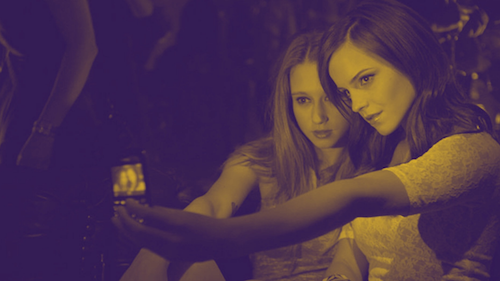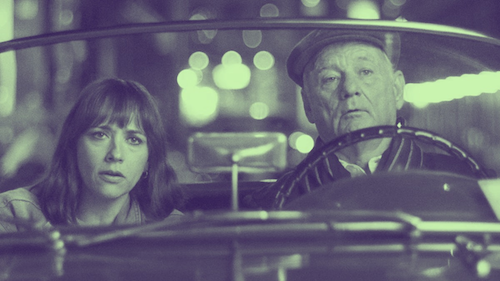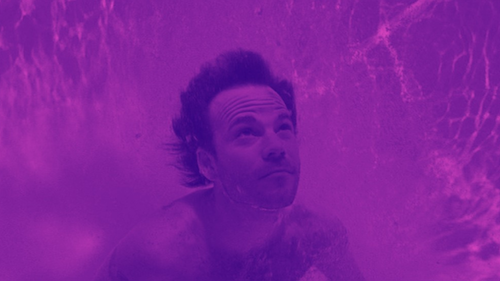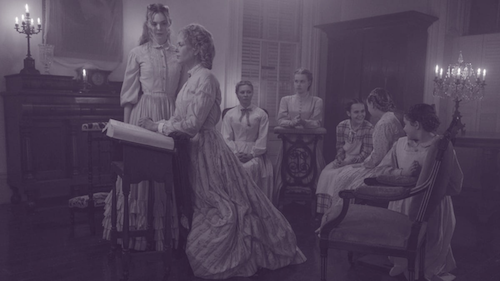Filmography Worship: Ranking Every Sofia Coppola Film
Written by Andreas Babiolakis
Filmography Worship is a series where we review every single feature of filmmakers that have made our Wall of Directors
It seemed difficult to separate Sofia Coppola from her iconic father Francis Ford Coppola when she first started directing films. She was maligned for her performance in The Godfather Part III, and people love to play the nepotism card. Instantly, Sofia Coppola carved her own path and stuck in fifth gear heading in the same direction ever since The Virgin Suicides, and this leads me to a bold claim I am happy to make (I anticipate vitriol): yes, Francis Ford Coppola has four untouchable classics, but Sofia has had the more consistent career quality wise. I said what I said. The comparisons end here.
Known for her hazy, lush, colourful films that carry their own mixtapes for soundtracks (I’ll go into the music for each film’s entry below), Coppola has become the poster filmmaker for daydream cinema. She imprints pieces of pop culture, femininity, and — most of all — her killer taste in music in every single film. Thematically, Coppola details what it feels like to be associated with someone undeniably famous, a girl and/or woman in a world that both objectifies and mistreats the female sex and the ennui of society where we are meant to be closer than ever before (and yet we feel lonelier). I don’t think Sofia Coppola has a single bad feature film, but I also find it quite simple to rank her filmography because of how strongly I feel about all of her motion pictures. It’s time to celebrate one of the greatest directors of our time and one of the top female filmmakers that we’ve ever seen. Here are all of the films by Sofia Coppola ranked from worst to best.
8. The Bling Ring
Coppola’s weakest film is unquestionably The Bling Ring, but even so, there is a lot to admire here. I love how she uses lower-quality camera technology to evoke the Myspace era that The Bling Ring is heavily associated with because she unintentionally foretells what TikTok and YouTube culture would feel like years later. As the film evokes suburban hip-hop moods behind rich girls who rob the houses of the elite, we get a sense of entitlement, boastful riches, and commentary on self-worth. I understand what Coppola is aiming for here with the reality television garnishing and the dissection of socialite behaviours, but The Bling Ring is also a little clunky with some tonal imbalance and a passive ending that functions like ellipses as opposed to a full stop. Still, The Bling Ring has some positives too (the cherished long shot, for starters), so it is worth a try if you are a fan of Coppola’s.
Best Needle Drop: “212” by Azaelia Banks.
7. On the Rocks
It was exciting to see Coppola reunite with Lost in Translation star Bill Murray, but On the Rocks is — obviously — not quite as good as the aforementioned film. Still, Murray delivers one of his finer performances in years here as the wild father of an author (played by Rashida Jones) who is trying to figure out her own place in life. As she suspects her husband of cheating on her, she gets wrapped up in her father’s eccentric ways to get down to brass tacks. While not as profound as the film could have been, I think On the Rocks is a solid film that doesn’t get enough dues. It’s a harmless connection between a parent and child who need to find their way back to each other again, albeit under these wonky circumstances.
Best Needle Drop: “I Fall in Love Too Easily” by Chet Baker.
6. Marie Antoinette
Easily Coppola’s most polarizing film, it has taken years for Marie Antoinette to get any sort of respect; from the anachronisms (popular songs, those purple Converse shoes) to the rom-com modernizations. Still, it’s admirable that a filmmaker made such an audacious effort on her third film. Does everything work? Maybe not, and even though the film is just two hours (which really isn’t all that long), it feels a tad bit overlong even so (perhaps I’m used to the hour-and-a-half average runtime of Coppola’s). However, most things do and we don’t have a costume period drama here (despite how stunning this film is) but rather a romantic comedy-drama with indie music jams and an independent woman who may get too ahead of herself (as per Marie Antoinette lore).
Best Needle Drop: I kind of want to say Gang of Four’s “Natural’s Not In It”, but I’m going to pick tremendous usage of The Cure’s “Plainsong”.
5. Priscilla
Even though Priscilla is missing that kind of oomph that its dark side needs in order to deliver the worst elements of Priscilla Presley’s relationship and marriage with Elvis. Even with this missing tension, Priscilla is a fantasy of a film that captures idolization culture, toxic masculinity, and the zeitgeist of the fifties, sixties, and early seventies (Coppola bypasses the use of Elvis Presley’s music by incorporating some major hits of the time, and the occasional Elvis cover). It functions as a cycle of love and abuse that Priscilla gets caught up in; from forgiveness to neglect. Watching Priscilla age from a wide-eyed teenage girl to a jaded woman is powerful-yet-depressing to watch, and Coppola drives home the point of the abuse of power and the backwardness of gender roles from yesteryear.
Best Needle Drop: “Baby, I Love You” by The Ronettes.
4. Somewhere
Perhaps Coppola’s most stripped-down film, Somewhere still manages to be one of her strongest examples as to how confident she is as a director. Even with the minimalist design and the emptiness of the plot, Somewhere feels like an entire lifetime of a feature film. With killer rock songs, pole dancing, and self-loathing galore, we get a deep dive into the void that a superstar-yet-washed-up actor (Stephen Dorff as Johnny Marco) experiences, particularly when he is abruptly visited by his estranged, tween daughter (Elle Fanning as Cléo). They bond but there is still this space in between them, and between the film and us. It’s easy to see why some would skip over this film, but I sincerely think it is one of Coppola’s strongest particularly because of what she doesn’t work with as opposed to what she does: only a naturally gifted director can make a film as plain as Somewhere feel like riveting cinema (it won the Golden Lion from the Venice Film Festival, after all).
Best Needle Drop: “20th Century Boy” by T. Rex.
3. The Beguiled
Coppola’s feminist answer to Don Siegel’s film adaptation of the Thomas P. Cullinan novel of the same name is breathtaking cinema. Easily her most intense film (particularly because of its allegorical stance on toxic masculinity, as Corporal John McBurney needs tending to within a female-dominant household, and the situation goes downhill from there), this modern look at the Southern Gothic, Civil War story is aware of the ripple effects of blind eyes being turned and the corruption within skewed societies. Equal parts harrowing and gorgeous, Coppola extends herself even outside of her own comfort zone here, which got her the Cannes award for Best Director; the fact that she pulls off a complete story with proper character arcs and endless visual splendour in only ninety-four minutes is miraculous.
Best Needle Drop: The Civil War Era ballad “Lorena” gets implemented beautifully (The Beguiled is the only Sofia Coppola film to not heavily use recorded songs in any way, but this still counts as the auteur’s affinity for music).
2. The Virgin Suicides
What a phenomenal debut feature film. Coppola had something to say about the psychological melodrama The Virgin Suicides about teenage angst in suburban America in this meditative, calm-yet-tense look at sheltered sisters that are itching to rebel against life (almost quite literally if you think about it). Featuring a monumental, electronic score from French artist Air, The Virgin Suicides feels like a series of recollections from one’s high school years and that family that everyone knew and had been talking about (as if to ponder whatever happened to them). It is blissful, heartbreaking, and idiosyncratic. For anyone who wants to play the nepo card on Sofia Coppola, The Virgin Suicides is concrete proof that she was meant to be making motion pictures no matter who her family is.
Best Needle Drop: “Crazy on You” by Heart, which was always better than “Barracuda” (sorry, not sorry).
1. Lost in Translation
By only her second feature film, Sofia Coppola was an Academy Award-winning filmmaker who crafted a generational motion picture that continues to floor audiences to this day. As much I love pretty much everything Coppola has made, her magnum opus is — without a doubt — Lost in Translation. As we are stuck in Tokyo, Japan with a jaded film star (Bill Murray as Bob Harris) and a newly married graduate (Scarlett Johansson as Charlotte), we get two different perspectives of life; the former confining himself to his hotel room and the bar downstairs, only to go golfing once, and the latter who allows Tokyo to guide her into whole new ways of thinking. The film’s concept was conceived by Coppola when she was literally lost in Japan while listening to My Bloody Valentine’s Loveless (the greatest album of all time, I might add) on her iPod; she would later hire the band’s Kevin Shields to compose the score and compile the tracks used in this film. Copoola perfectly captures the sensations that one feels when they are overwhelmed by a new place or underwhelmed by life itself in this character study of two souls that are lost for completely different reasons. Additionally, Charlotte is beginning to feel the neglect that Bob is already enveloped by. This is an unmistakably brilliant film that has changed the game for indie filmmakers, and it assured the world that Sofia Coppola was a talent we had to keep our eyes on; six other films afterwards, we were right to keep up.
Best Needle Drop: I want to say “Just Like Honey” by The Jesus & Mary Chain, but I’m biased and the scene is jaw-dropping, so I’ll select My Bloody Valentie’s “Sometimes” instead.
Andreas Babiolakis has a Masters degree in Film and Photography Preservation and Collections Management from Ryerson University, as well as a Bachelors degree in Cinema Studies from York University. His favourite times of year are the Criterion Collection flash sales and the annual Toronto International Film Festival.











